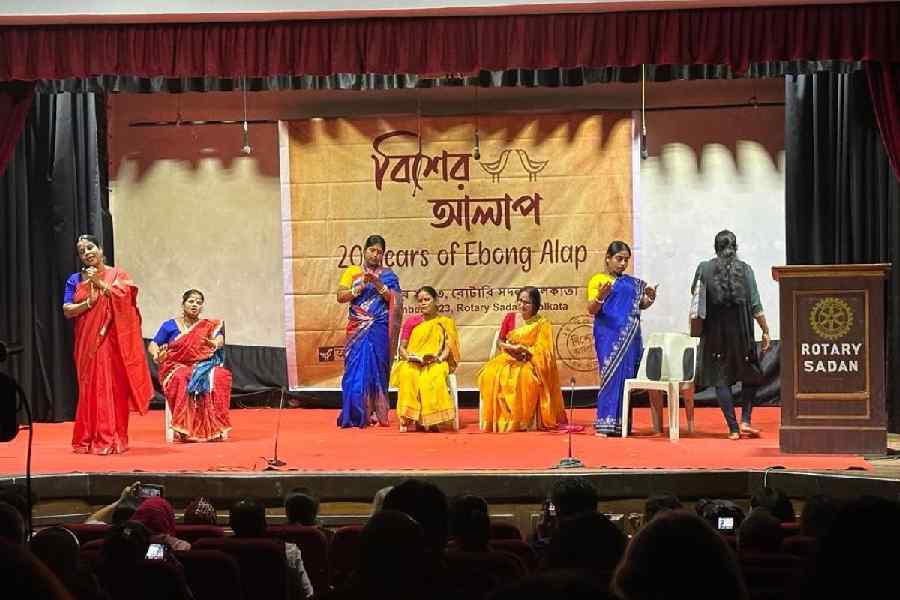Library at Piyali brings back learning: 50 students and some of their mothers attend classes


Scores of children on the verge of quitting studies during the Covid-forced lockdown were brought back to the mainstream by a library and learning centre in a pocket of South 24-Parganas.
Since the beginning of this year, the same centre has also been instrumental in teaching the mothers of the children and other older women in the neighbourhood.
The library-cum-resource centre is called Piyalir Boighar. Piyali — in Canning, the gateway to the Sunderbans, around 70km from the heart of the city — and neighbouring areas are home to thousands of people who comprise the workforce that keeps Calcutta running.
The library started in 2021, in the wake of mass dropouts of children because of Covid and Cyclone Amphan (2020). The centre now has more than 50 students, from Class V to Class XII. All of them are enrolled in government schools. But a bulk of their learning happens at the Boighar. The learning is often in the form of book-reading sessions, film screenings and workshops on a range of subjects, from science and history to awareness of sexual harassment.
“Many older women would often come to the centre with their wards. They would listen to the book-reading sessions. Gradually, some of them got more and more interested. A prod came from them. They would request us to teach them as well,” said Sarmistha Dutta Gupta, president of Ebong Alap (Conversations and More), a voluntary organisation focused on “critical and gender-sensitive citizenship”.
The organisation, which runs the library, started the adult literacy programme, Suchana, in January.
“Now, I can at least sign receipts to withdraw or deposit cash in a bank. I can read the number of a bus,” said Kajal Mondal, in her late 40s, and one of the students of the programme, which has some 15 women now.
Jhenu Mondal, 65, is the oldest student. She is widowed and childless. “Her only wish was to be able to write her name before she was dead. Now, she can do that,” said Dutta Gupta.
Most of the women were either illiterates or early dropouts. Most of them were married off in their early teens. Some of them work as domestic help in Calcutta. Some help their husbands in seasonal farming. Some are just homemakers.
“For them, coming to the library three days a week, for two-hour classes, is not easy. Some of them have to face objections from family members. But they come because learning gives them self-respect,” said Ruchira Goswami, secretary of Ebong Alap.
On December 15, members of Suchana staged a play at a south Calcutta auditorium at a programme that celebrated 20 years of Ebong Alap.
The play projected everyday problems the women faced — resistance in going to the city for tuition and earning a livelihood by stitching and selling clothes.
The programme also awarded three achievers.
One of them was Sintu Bagtui, a transgender activist who became a Lok Adalat judge in Hooghly. Namita Das, a writer, theatre and Dalit rights activist and Milantara Khatun, a national-level athlete who is now a sports coach in Murshidabad, were also recipients of the Lingo-Samya (gender-equity) award.
Sappho for Equality, which works for the rights of individuals with non-normative gender-sexual orientations, identities and expressions, and a theatre group with women from Tiljala and Topsia areas also performed at the programme.